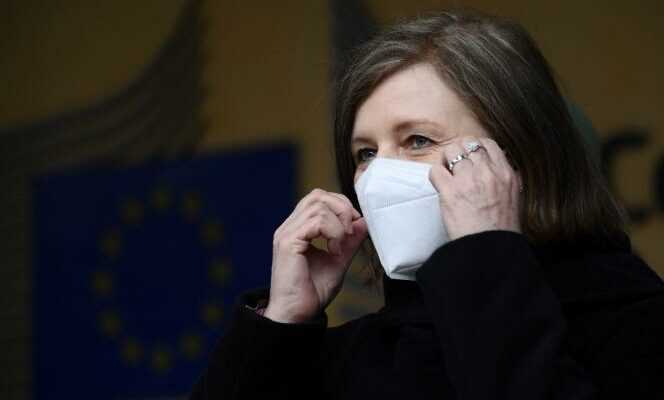Vera Jourova, Czech Vice-President of the European Commission, leads the institution’s work on countering outside interference, protecting media freedom and upholding the rule of law.
What means does the European Union have to counter the hybrid attacks (cyberattacks, disinformation campaigns, etc.) carried out by Russia in the current crisis with Ukraine?
The Kremlin has been using these permanent attacks for a long time. So the first thing we need to do is to stop being naïve and underestimating them. Disinformation campaigns are designed to target weak points in each society. Sometimes it is a question of reinterpreting history, elsewhere of convincing people that life under the Soviet regime was fairer, safer. This story floods the social networks of many countries, including my own, the Czech Republic.
In the context of escalating tensions with Ukraine, the messages insist that Ukraine and NATO) are the aggressors, that Kiev is carrying out a genocide of the Russian-speaking populations in the Donbass region… We spotted 2,700 such examples in 2021. This shows a coordinated plan. It is difficult to know the impact of this disinformation on public opinion, but, in Slovakia for example, a recent poll shows that 44% of the inhabitants believe that NATO is indeed at the origin of the crisis between the Russia and Ukraine. Faced with such brainwashing, imagine the difficulties democratic governments have in convincing their citizens if they should act in this crisis…
In Europe, we want almost at all costs to preserve freedom of expression. Banning content or media is a last resort. The propagation of false information must therefore become more costly and less easy. This is why the Commission is currently working on the drafting of a code of good practice, encouraging companies which buy advertising on the networks to adopt rules aimed at reducing the dissemination of these messages. We also want the platforms to hire more people, journalists or fact-checkers, for a better distinction between facts, opinions and false information. We would like this code to be signed and come into effect by March.
Why do the countries of Western Europe appear more willing to dialogue with the Kremlin than the countries of the East?
You have 56.07% of this article left to read. The following is for subscribers only.
